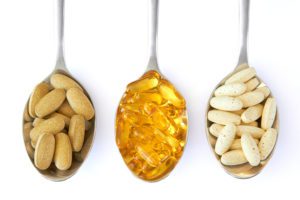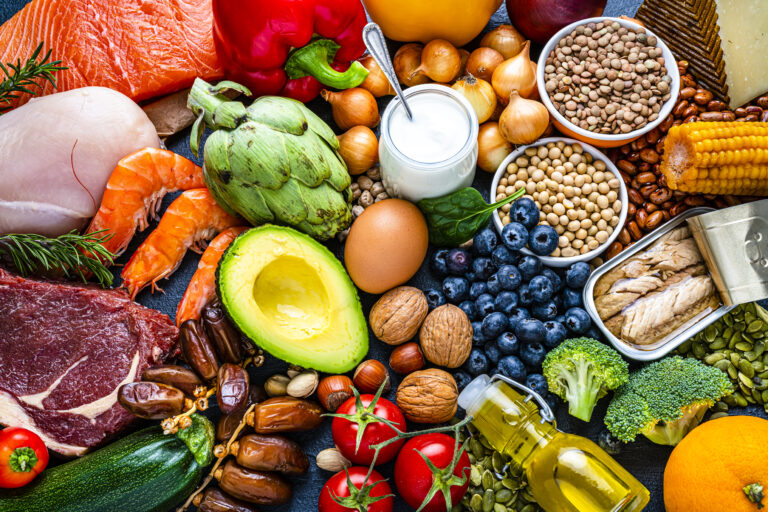During the first weeks, postbirth experts at the CDC say it’s essential for postpartum moms to add in the extra calories and nutrients needed to support recovery and breastfeeding—and this runs, on average, approximately 330-400 calories a day. If you consume a vegetarian or vegan diet, you may not get all of the postpartum nutrition you need to support lactation and nursing through food alone. Even if you’re eating a diet that includes all of the food groups, get most of those calories from nutrient dense fresh veggies, fruits, lean proteins and healthy fats, and avoid the temptation to hit the drive-thru on the way home from your postpartum appointments. Along with good fresh food, you need adequate hydration. Breastfeeding may dehydrate you, so drink water each time you nurse your baby or use your breast pump. So what is the way to go when it comes to postpartum nutrition?


Prenatal or Postnatal Vitamins?
The American College of Gynecologists & Obstetricians (ACOG) recommends that you continue taking prenatal vitamins while breastfeeding. Even if you choose not to breastfeed your baby, the doctors at ACOG recommend you continue your prenatal vitamin for at least 6 months to support your postpartum recovery. Some companies are now making postpartum supplements. Experts are mixed on whether a specific postnatal supplement is needed as their ingredients are very similar to their prenatal counterparts.
Postpartum Supplements & Postpartum Depression
According to statistics from the CDC, between 11-20% of women who give birth each year in the U.S. experience postpartum depression symptoms, which is the leading risk factor for maternal suicide and infanticide. With nearly 4 million births annually, that’s almost 800,000 women with postpartum depression each year. Researchers at the UT Southwestern Medical Center recommend Omega-3 fatty acids in the postpartum period from fish oils containing both DHA and EPA as a number of randomized controlled trials have shown that omega-3 fatty acids significantly helped with postpartum depression. Researchers observed, though, that the greatest benefits were gained by postpartum people who took fish oil supplements in addition to receiving therapy for depression.
Support Your Postpartum Recovery
Here’s the shortlist most often mentioned supplements for use postpartum—most of which you can find in your prenatal vitamin or in the new postnatal supplements:
- Vitamin D for its ability to strengthen your immune system; some research shows it reduces the risks of postpartum depression— and perhaps anxiety too
- Probiotics to restore your gut’s bacterial balance
- Iron to stave off low energy
- Iodine to support your thyroid and baby’s brain and nervous system; the National Institutes of Health recommends 200 mcg daily during postpartum Vitamin B12 to boost the nutritional content of your breast milk
- Choline for brain health, which can also be found in meat, eggs, fish and dairy
YOU MAY ALSO LIKE: Tattoos During Pregnancy, Childbirth, and Lactation






Comments are closed.